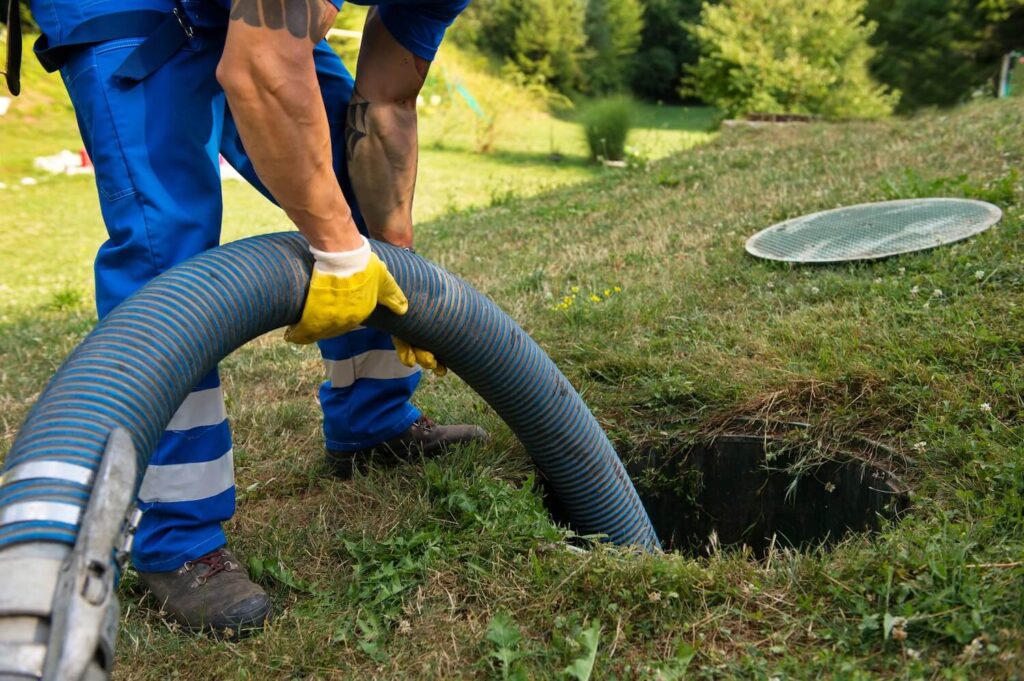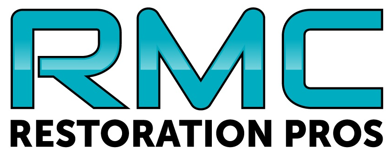
Sewage backups are one of the most inconvenient and dangerous plumbing emergencies a homeowner or business can face. Often sudden and unexpected, these backups can wreak havoc on your property, causing severe damage and posing serious health risks. While most people associate sewage backups with unpleasant odors or flooding, the reality is far more concerning. These incidents can involve dangerous pathogens, toxic chemicals, significant structural damage, and long-term health complications that might not be immediately visible.
This article explores the hidden dangers of sewage backups, why they are far more hazardous than they may seem, and why expert help is absolutely essential in dealing with the aftermath of a sewage backup.
1. What Is a Sewage Backup?
A sewage backup occurs when wastewater from your toilet, sinks, bathtubs, or other plumbing fixtures reverses its normal flow and enters your home or property. Typically, sewage is carried away from your home to a municipal sewer system or a septic tank. However, when something goes wrong—such as clogged pipes, a break in the sewer line, or a blockage in the municipal system—the wastewater cannot flow properly, resulting in it backing up into your home.
These backups can happen suddenly, often when you least expect it. Common signs of a sewage backup include foul smells, slow drains, or water pooling around drains or toilets. However, the risks and consequences of such backups go far beyond these initial symptoms.
2. The Health Hazards of Sewage Backups
One of the most pressing dangers of sewage backups is the immediate and long-term health risks they present. Sewage water is classified as “black water,” which is the most dangerous category of wastewater. Unlike gray water from sinks or bathtubs, black water contains not only human waste but also toxic chemicals, bacteria, viruses, and other contaminants that can lead to serious illness.
Pathogens Found in Sewage
The primary health risk from sewage backup is exposure to harmful microorganisms, many of which can cause a variety of infections and diseases. These pathogens can be found in both the water and the air during a sewage backup. Here are some of the common contaminants you may be exposed to:
- E. coli: This harmful bacterium is often present in human waste and can cause severe gastrointestinal distress, including diarrhea, vomiting, fever, and dehydration. In more severe cases, it can lead to kidney failure, especially in vulnerable populations such as young children and the elderly.
- Salmonella: Often linked to contaminated food, Salmonella can also be present in sewage backups. It can cause nausea, vomiting, abdominal cramps, and diarrhea. In rare cases, Salmonella can spread to the bloodstream and cause severe illness.
- Hepatitis A: This virus affects the liver and can be contracted through direct contact with contaminated water. Symptoms of Hepatitis A include jaundice (yellowing of the skin and eyes), fever, nausea, and abdominal pain. Hepatitis A can be a serious and potentially life-threatening condition if left untreated.
- Giardia and Cryptosporidium: These parasites are often found in sewage water and can cause severe gastrointestinal illness, including chronic diarrhea, abdominal cramping, and nausea. They are known for their resistance to chlorine and other disinfectants, making them especially difficult to remove from contaminated environments.
In addition to these, there are other viruses and bacteria that can be found in sewage water, including Norovirus and Campylobacter, which can cause food poisoning and intestinal infections. Exposure to these pathogens can lead to serious illnesses, particularly in children, the elderly, and individuals with compromised immune systems.
Chemical Contaminants in Sewage Water
Sewage water is not only contaminated with biological pathogens, but it can also contain various toxic chemicals that may harm your health. Common household chemicals, medications, detergents, and even industrial waste can find their way into the sewage system, making sewage backups even more hazardous.
Chemicals such as household cleaners, disinfectants, paints, solvents, and pesticides can enter the sewage system through drains, causing toxic reactions when mixed with other substances. Direct exposure to these chemicals can result in skin irritation, respiratory issues, poisoning, and long-term health effects. Additionally, inhaling fumes from the sewage backup can cause eye, nose, and throat irritation and may worsen asthma or other respiratory conditions.
3. Property Damage Caused by Sewage Backups
Beyond the immediate health risks, sewage backups can cause significant and lasting damage to your property. The contaminated water can flood your floors, carpets, furniture, walls, and other personal belongings, often rendering them unusable. Here’s a deeper look at the types of damage caused by sewage backups:
Structural Damage to Your Property
Sewage water doesn’t just affect your immediate living space—it can also damage the structural components of your home. Water from sewage backups can seep into walls, ceilings, and floors, causing them to weaken, rot, and become unstable. The longer the sewage water sits, the more damage it can do. Wood, in particular, is highly susceptible to rotting when exposed to contaminated water, which can compromise the overall structural integrity of your property.
Plaster, drywall, and insulation materials are also vulnerable to sewage water. When these materials absorb the contaminated water, they become weakened, stained, and eventually disintegrate. If not addressed quickly, these materials may need to be completely replaced, resulting in a costly and time-consuming restoration process.
Mold Growth
One of the most insidious consequences of sewage backups is the growth of mold. Mold thrives in moist environments, and when sewage water is left standing, it provides the perfect breeding ground for mold to develop. The risk of mold growth is especially high if the area isn’t properly cleaned and dried within 24 to 48 hours of the backup.
Mold can spread quickly through contaminated areas, damaging carpets, drywall, and furniture. The spores from mold can also become airborne, which poses additional health risks to people in the building. Mold exposure can lead to respiratory problems, skin irritation, and exacerbation of asthma or allergies.
Damage to Personal Belongings
Personal belongings such as clothing, electronics, furniture, and valuable items can be severely damaged by the contaminants in sewage water. Items such as books, photographs, and documents may be ruined beyond repair due to exposure to the bacteria and chemicals in the sewage. Furniture and textiles are often irreparably stained or soaked through, rendering them unusable. In severe cases, the cost of replacing damaged items can be substantial.
Contaminated Air Quality
In addition to the visible damage caused by sewage backups, the air quality in your home or business can become compromised. The high levels of bacteria, mold spores, and chemicals in the sewage can become airborne, making it dangerous to breathe in. Prolonged exposure to these contaminants can lead to respiratory illnesses, allergic reactions, and other health problems. The foul odors associated with sewage backups also contribute to poor indoor air quality, making the environment unpleasant and potentially harmful.
4. Why Expert Help Is Essential
Given the severity of the risks associated with sewage backups, it is critical to seek expert help as soon as possible. Professional sewage cleanup companies have the necessary equipment, expertise, and experience to handle these hazardous situations effectively and safely. Here’s why expert help is essential in the aftermath of a sewage backup:
Safe and Thorough Cleanup
Cleaning up sewage requires specialized equipment and techniques that go far beyond simple mopping and drying. Professionals use industrial-grade pumps, vacuums, and dehumidifiers to remove contaminated water and dry out affected areas. They also use powerful disinfectants and sanitizers to eliminate harmful bacteria, viruses, and pathogens, ensuring that the space is safe to reenter.
Attempting to clean up the sewage backup yourself without the proper tools and training can put you at greater risk of exposure to harmful contaminants. Experts can quickly assess the damage and ensure that the cleanup is done in a way that minimizes the risk of further contamination.
Safe Removal of Contaminated Materials
In many cases, sewage water can irreparably damage materials such as carpets, insulation, drywall, and furniture. Professional cleanup crews are trained to properly remove and dispose of contaminated materials to prevent further exposure to harmful pathogens. This includes safely removing hazardous waste and ensuring it is disposed of according to local regulations. Without expert help, the cleanup process could be incomplete, allowing bacteria and mold to continue spreading throughout the property.
Mold Remediation and Prevention
Mold is one of the most serious consequences of a sewage backup, and it can begin to grow quickly if not addressed immediately. Mold remediation requires specialized equipment and techniques to ensure that mold is completely removed and that it does not spread to other areas of the home. Professional cleanup teams are experienced in detecting mold growth and using advanced tools like air scrubbers and moisture meters to ensure that the property is dried out thoroughly to prevent future mold issues.
Insurance Support and Documentation
Sewage backups can result in significant property damage, and you will likely need to file an insurance claim. Professional cleanup companies can provide detailed documentation of the damage, including photos and reports, which will be crucial when filing your claim. They can also work with your insurance provider to ensure that you receive the compensation you need to repair the damage.
Protecting Your Health and Safety
The primary reason for hiring experts to handle a sewage backup is to protect your health and safety. Exposure to contaminated water and air can have severe health consequences. Professional technicians are trained to handle these situations with the proper safety equipment, such as protective suits, masks, and gloves, ensuring that they are not exposed to harmful contaminants. Their expertise allows them to minimize health risks while cleaning up the affected area.
5. Preventing Sewage Backups
While expert help is crucial when dealing with a sewage backup, prevention is always the best approach. Taking proactive steps to maintain your plumbing system can help prevent sewage backups before they happen. Here are some tips for avoiding sewage backups:
- Regular Plumbing Inspections: Have a professional plumber inspect your plumbing system regularly to check for signs of wear and tear, corrosion, or blockages. This can help identify potential problems before they become major issues.
- Avoid Flushing Non-Flushable Items: Items like wipes, paper towels, and feminine hygiene products should never be flushed down the toilet, as they can cause blockages in your pipes.
- Proper Drain Maintenance: Ensure that drains are regularly cleaned and maintained. This can help prevent the build-up of grease, soap scum, and other debris that could clog your system.
- Install a Backwater Valve: If your home is prone to flooding or experiencing backups, consider installing a backwater valve, which prevents sewage from flowing back into your pipes.
Conclusion
Sewage backups are a serious plumbing emergency that should not be taken lightly. The health risks, property damage, and potential for long-term complications make it crucial to address sewage backups with immediate, professional help. By hiring experts, you can ensure a thorough and safe cleanup, minimize the risk of further damage, and protect the health and safety of your family or employees. Don’t wait until the situation escalates—take proactive measures to prevent backups and always reach out to professionals when disaster strikes.
